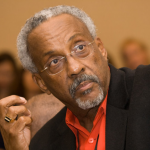Too many leaders have either an erroneous or insufficient understanding of organizational development and how it could benefit their teams and organizations.
BY MICHAEL F. BROOM, Ph.D. | CEO, Center for Human Systems
I was having dinner with the leader of a significant organization in Chicago. We discussed the organization development project he had hired me to lead with him. At some point in the conversation, he looked up at me and said, “I’m glad you’re not one of those OD (organizational development) people.”
After recovering from my surprise, we had an excellent discussion on organizational development and how it differs from other change management processes.
That leader is not unusual. Too many leaders have either an erroneous or insufficient understanding of organizational development and how it could benefit their teams and organizations.
In this article, I will summarize how I helped my client understand organization development and why it is the most powerful technology for managing change in human systems.
You will see how organizational development overcomes two faulty belief systems that are endemic in Western society and cause significant missteps in organizational life.
The two faulty beliefs are:
- Individuals are the primary unit of society and our organizations. This causes leaders (and everyone else) to see individuals as the drivers of success and problems. Many leaders talk about their teams, but individuals are the predominant focus of rewards and accountability. How many organizations do you know that reward teams consistently?
- Individuals are not the primary unit of organizations or society. Small groups such as teams and other human systems are. Only human systems, primarily individuals working in small groups, have created anything of sustainable significance.
- Conflict is something to avoid. Avoiding conflict leaves many unresolved conflicts to continue either openly or passive-aggressively. Either way, they become significant distractions from team and organization goals, severely damaging productivity and engagement.
A definition of organization development
- The technology of working with leaders and their teams to improve productivity and employee engagement through
- Root-cause problem-solving and systemic change of group norms and organization culture using
- Coaching, collaboration, consensus-building, and conflict resolution
Working with leaders and their teams to improve productivity and employee engagement
What leader does not want to improve productivity and employee engagement? Many leaders think OD practitioners facilitate retreats, deliver training, or carry some client-identified solution.
Those tasks are certainly within the skill set of organization development practitioners but only within the context of systemic analysis. The analysis will often point to systemic issues the leader has yet to identify and that the requested solution will not resolve.
Systemic analysis allows us to solve problems at their root, decreasing the likelihood of recurrence.
Root-cause problem-solving and systemic change of group norms and organization culture
This area makes organization development the most potent of change management technologies. All organizations have been developed by, are run by, and maintained by some set of human systems — the teams and other employee groupings that direct and do the organization’s work, technology notwithstanding.
As much as an organization may attend to its mechanical, electronic, and financial systems, it depends on its human systems.
Like all systems, human systems are synergic. Their behavior cannot be predicted from the purposes and skills of the system’s members.
Put a bunch of bright, knowledgeable, and friendly individuals together. There is no initial way of knowing if their synergy will be positive as they gel into a high-performing team that invents the next great breakthrough.
Or if their synergy will be harmful as they waste time and energy complaining, blaming, power struggling, or engaging in other non-productive behaviors.
Without understanding the synergic dynamics of human systems, creating effective teams will continue to be a mystery in many organizations. Without this understanding, group norms and organizational culture manage individual behavior rather than vice versa.
It is a rare organization that focuses its primary feedback loops and accountability structures on its human systems. Leaders talk a lot about being team-based, but rewards and accountability for individuals dominate.
As human systems become more effective, so will their members and the organization. Diagnosing and working with human systems is the particular skill the organization development practitioners bring to solve problems at their systemic roots and create great teams and organizations.
Coaching, collaboration, consensus-building and conflict resolution
These are the skills organization development practitioners have to help leaders and teams improve. The skills to coach leaders to:
- Make peace with and manage their egos.
- Understand human systems and the impact their behavior has on them.
- Manage their behavior and belief systems in ways that will build more robust, more cohesive, and more productive teams.
- Gain the skills to facilitate teams with their leaders to use collaboration and consensus to develop the strength of alignment and engagement needed to improve productivity to accomplish team and organizational goals.
- Gain the skills to facilitate the resolution of the conflicts that bedevil human systems everywhere. We help with conflicts that are obvious or have devolved into passive aggression. We focus on resolving them systemically as conflicts impact the entire system, not just the apparent combatants. This helps the systems develop the skills to resolve future conflicts more easily.
In closing, leaders who have had training in human system leadership and conflict resolution are rare. That rarity highlights the need for organization development practitioners to fill the gap that our society’s focus on individuals and conflict avoidance causes. Organizational development practitioners have the skill to help leaders swim uphill against stuck group norms and organizational culture so that healthy change can occur.
That is why organization development is the most potent technology for helping leaders and their organizations improve their productivity and engagement.
 Michael F. Broom, Ph.D., is an organizational psychologist with 45 years of experience with various people and organizations. He is the author of “The Infinite Organization” and “Power, The Infinite Game” with Donald Klein.
Michael F. Broom, Ph.D., is an organizational psychologist with 45 years of experience with various people and organizations. He is the author of “The Infinite Organization” and “Power, The Infinite Game” with Donald Klein.
Formerly of Johns Hopkins University, he founded the Center for Human Systems and is a Lifetime Achievement Award honoree of the OD Network.
Contact Dr. Broom for coaching and consulting for your organization at michael@chumans.com. For more information on the Center for Human Systems, visit chumans.com.











The reason people have a jaded view of organizational development “types”, is that too many OD folks focus on process, and lose sight of purpose. Its the objective that is the primary driver of success, not the process. Southwest airlines single minded focus on serving customers profitably led to their stock outperforming every other publicly traded stock during Herb Kelleher’s tenure as CEO. His teams and individuals rallied around this. It is not teams or individuals that is important. It is both.
This premise is captured in the HBR article, “More than a Paycheck” The research that proves how profitably this is, can be viewed in the article, “A Key Strategy to Double Your Profitable Growth”. And if you are interested in a great thought leader on organizational development, I would suggest HBS Professor John Kotter.